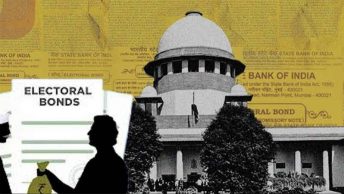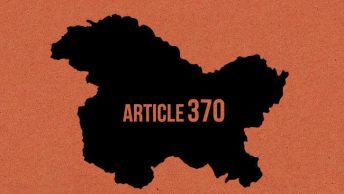The Supreme Court was recently called upon to answer the question on whether a client who finds his/her lawyer’s services to be deficient could raise a claim under the Consumer Protection Act (hereinafter, ‘CPA’). This exact question of law was decided in the case of Bar of Indian Lawyers v. DK Gandhi. The Division Bench of Justice Bela Trivedi and Justice Pankaj Mittal, giving concurrent opinions, arrived at the same conclusion on why the CPA, 1986 would not be applicable to lawyers. While the exemption of lawyers from the purview of the CPA was the anticipated outcome, the rationale the Bench has based the same on has ruffled some feathers. This piece will delve first into the two opinions and will largely evaluate the opinion of Justice Mittal’s excessive reliance on foreign law and precedent.
A) Opinion of the Court
The Division Bench gave two opinions reaching the same conclusion on why the CPA will not be applicable to lawyers. Justice Bela Trivedi justified the non-applicability of CPA, 1986 to lawyers on three major grounds. First, she held there was a lack of explicit mention of including lawyers into the definition of “services” under Section 2(1)(o) of CPA, 1986. Second, she held lawyers, unlike other professional services operate on a different plane given the sui generis nature of the profession itself. Finally, Justice Trivedi equated the service of a lawyer to his client to a personal contract of service exempting the application of the CPA, 1986.
Justice Pankaj Mittal came to the same conclusion but used more of a comparative legal approach. In his opinion, he embarks on a cross-jurisdictional journey comparing various consumer protection laws. Specifically, he makes references to common law countries like Malaysia (where Section 2(2)(e) of the Malaysian Consumer Protection Act, 1999 specifically exempts the application of consumer protection law to lawyers), Canada (where Section 188 of the Consumer Protection Act of Quebec exempts application of consumer law to professions), US (examples of the statutes of the District of Columbia and Maryland were highlighted) and Australia (which recognizes this exemption in D’Orta-Ekenaike vs. Victoria Legal Aid). Justice Mittal also takes help of the civil law system of the European Union (hereinafter ‘EU’) wherein a Directive of the EU Parliament deals with consumer rights, while providing an exemption to “regulated professionals”. Thus, Justice Mittal concludes that the Advocates Act, 1961 is a complete code sufficient enough to regulate the relationship between lawyers and clients.
B) Understanding the “Deficiency” of the Precedent: Justice Mittal’s (Mis)Reliance on Foreign Jurisdictions
While critique of Justice Bela Trivedi’s opinion on holding the client-lawyer relationship as a contract of service and her non-consideration of the amicus curiae’s submissions has been written about to a large extent, Justice Mittal’s opinion does require equal scrutiny. At this juncture, it would be prudent to revisit this opinion of Justice Mittal from the point of view judicial cosmopolitanism.
i. Is Judicial Cosmopolitanism Always the Panacea for Gap-Filling?
To quote the former Chief Justice of Ireland, Justice John Murray, judicial cosmopolitanism as a concept is a consequence of globalization which leads to national courts referring to statutes and case-laws of other jurisdictions or international adjudicating authorities. While there is no doubt that national laws and their interpretation cannot be always read in clinical isolation, there are certain limitations that judges should be keep in mind while importing foreign precedents into domestic dispute resolution. As explained in G.F. Ferrari’s famous work, Judicial Cosmopolitanism: The Use of Foreign Law in Contemporary Constitutional Systems, use of foreign law itself is rare, limited to mainly circumstances where national courts use foreign law firstly, to interpret general principles of law and secondly, where foreign law can act as a gap-filler while interpreting constitutional rights. Thus, as evidenced by judicial practice around the world, the use of foreign precedents explicitly to interpret and gap-fill domestic legislations has not been common practice, rather being a discouraged practice by national courts.
Another reason why judicial cosmopolitanism as a doctrine is to be discouraged is echoed in the following words of Justice Antonin Scalia’s dissent in the famous case of Lawernce v. Texas (which dealt with domestic legislation prohibiting same-sex unions) wherein he states: “What these foreign sources ‘affirm,’ rather than repudiate, is the Justices’ own notion of how the world ought to be, and their diktat that it shall be so henceforth in America.”
A two-pronged problem, thus, can be identified from using comparative legal scholarship to interpret and gap-fill national statutes. One is the limited aptness of judicial cosmopolitanism to apply only as gap-fillers for general principles of law and two, sometimes it takes one down the rabbit hole wherein the judge’s personal view takes the place of the legislative intention behind a domestic statute when it comes to its interpretation. The further sections will delve into how Indian judges have set out fetters against the use of this doctrine when it comes to gap-filling of domestic legislations and how Justice Mittal’s use of foreign precedents can be considered a (mis)adventure.
ii. The Indian Tryst with Judicial Cosmopolitanism
Justice Chinnappa Reddy in General Electric Company vs Renusagar Power Company observed the following about the use of foreign precedents for interpreting Indian statutes:
“The time has perhaps arrived to discourage uninhibited reference to and extravagant use of foreign precedents, though indeed we welcome such precedents when they explore virgin territory and expand the horizons of legal thought. The setting of a foreign judgment is the foreign country’s past and present history, its economic relations, its social relations, its trade and commerce, its traditions, its values, its needs, the stages of the development of its people, its legal ideology, its constitutional direction and strategies and its statutes and precedents. Foreign precedents are to be read and remembered in their setting, out never to be elevated to the level of binding precedents and, therefore, to be avoided from frequent and needless question”
This fetter has been carefully followed by the Supreme Court while using foreign statutes or precedents for interpretation of Indian statutes. For instance, the Supreme Court, in State of West Bengal vs. BK Mandal and Sons refused to take assistance from English Law regarding the interpretation of Section 70 of the Indian Contract Act, 1872 given that the language of the statute itself was clear and there was enough Indian jurisprudence to interpret the same. Similarly, in a matter dealing the evidentiary requirement to prove the genuineness of a will, the Supreme Court in Surendra Pal & Ors vs Saraswati Arora, held that Indian Courts should be circumspect on relying on foreign laws and precedents as they encapsulate a background or a context of that country which could be different from the Indian lawmakers’ intention regarding enacting a law on a similar subject. These aforementioned instances indicate how the Supreme Court itself has been circumspect in incorporating foreign laws and precedents while interpreting Indian statutes given the different socio-legal milieu such legislations have been enacted in. Instead, it had given foremost preference to the language of the Indian Statute, the legislative intent and existing Indian precedents.
iii. Justice Mittal’s (Mis)adventure
All the foreign jurisdictions that Justice Mittal uses in his opinion exclude the application of the consumer protection laws on regulated professionals through an explicit mention of the same as an exception. On the other hand, both CPA, 1986 and CPA, 2019, do not by explicit means mention that professional services are to be exempted. If one takes a closer look, for instance, into the EU Parliament’s Directive, paragraph 31 of the Directive clearly states how this directive does not affect the operation of the 2005 Directive which lays down a special regime to regulate specialised professions like healthcare. However, if one were to survey the debates or the bare text of both CPAs, there has been no explicit mention of reading the CPA in consonance with specialised regulatory regimes for professions like the Bar Council Regulations for lawyers. Thus, relying on foreign statues, where there is an explicit exclusion, as the basis for reading the exemption of lawyers into Section 2(1)(o) of CPA, 1986 is like comparing apples to oranges.
C) Concluding Remarks
In conclusion, Justice Mittal could have solely relied on the sui-generis nature of the legal profession which has been held and reiterated by multiple Indian precedents. This distinction of the nature of the legal profession itself would have been sufficient in order to bypass the IMA Judgement which squarely applied to medical practitioners. However, the excessive reliance on foreign precedents and statutes to exempt the application of the CPA not only goes against the principles laid down by Indian Courts as fetters on the use of foreign law for the purposes of interpretation but also surely makes for a case of a misadventure of judicial cosmopolitanism!
Krishna is a third-year student from NLU, Jodhpur who has a deep passion for public law and constitutional law.
[Ed Note: This piece was edited by Archita Satish and published by Baibhav Mishra from the Student Editorial Board]
Cover Image Credits: https://







[…] Posted byKrishna Ravishankar […]
If lawyers are brought into Consumer Protection Act. Then, there will be lots of new problems, such as the case handled by the lawyer needs to be brought into trial again. So, its not possible to bring lawyers into Consumer Protection Act.
h6qvtj